Introduction: Unveiling the Connection Between Psilocybin and Serotonin
In recent years, the intersection of psilocybin and serotonin has captured the attention of scientists, mental health professionals, and the public alike. As research into psychedelic mushrooms deepens, we are uncovering intricate ways that psilocybin magic mushrooms interact with our brain’s most fundamental chemical messengers. Understanding what do shrooms do to your brain offers critical insight into their therapeutic potential and broader implications for cognitive health. This article explores the fascinating dialogue between psilocybin and serotonin, shedding light on the benefits of magic mushrooms and how they reshape our perception, mood, and consciousness.
You may also like: How Lion’s Mane Supplements May Support ADHD and Cognitive Clarity: What Science Says About Lions Mane for Focus and Brain Health
The resurgence of scientific interest has not only clarified what magic mushrooms do to your brain but has also challenged outdated myths about their dangers. By unpacking the psilocybin mechanism of action, we gain a clearer picture of whether concerns like “do magic mushrooms kill brain cells” or “does mushrooms make your brain bleed” hold any merit. Moreover, understanding the true psilocybin mushroom effects on the brain helps distinguish temporary neuroplastic changes from potential long-term risks, ensuring that discussions around psilocybin news remain anchored in evidence rather than fear.
Understanding Psilocybin and Serotonin: The Molecular Dance
Psilocybin, the active compound found in psychedelic mushrooms, undergoes a fascinating transformation once ingested. It is converted into psilocin, the molecule responsible for binding to serotonin receptors in the brain. Particularly, psilocin acts as a partial agonist at the 5-HT2A receptor, a key site implicated in cognition, imagination, and mood regulation. This molecular interplay lies at the heart of psilocybin benefits for mental health and creativity.
Serotonin, known scientifically as 5-hydroxytryptamine (5-HT), is pivotal for mood stability, sleep regulation, and emotional resilience. When exploring what do psychedelic mushrooms do to your brain, it’s essential to recognize how psilocybin mimics and modulates serotonin’s effects. Instead of simply boosting serotonin levels, psilocybin induces a profound reorganization of brain activity, enhancing connectivity between networks that usually operate independently. This dynamic explains why the shrooms effect often feels like an opening of the mind’s “doors of perception,” as Aldous Huxley poetically described.
Recent studies examining psilocybin effects on brain function reveal a temporary “reset” mechanism, wherein maladaptive neural circuits implicated in depression and anxiety may be disrupted and reformed. By understanding how psilocybin increases serotonin activity in selective ways, researchers are moving closer to therapeutic models that use psilocybin magic mushrooms for profound healing without long-term adverse effects.
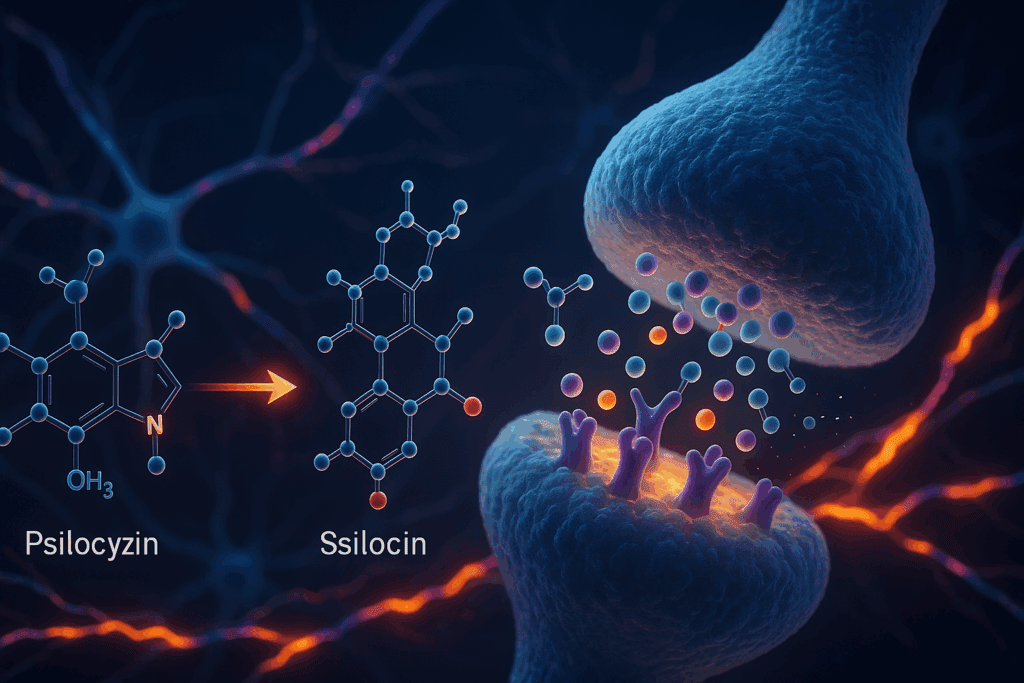
What Do Shrooms Do to Your Brain? Scientific Insights into Altered Consciousness
One of the most captivating aspects of psychedelic mushrooms lies in their ability to profoundly alter consciousness. When investigating what do shrooms do to your brain, imaging studies such as fMRI scans have shown that psilocybin reduces activity in the brain’s default mode network (DMN). This network, responsible for self-referential thought and rumination, often becomes hyperactive in mood disorders such as depression.
As the DMN’s control loosens, previously disconnected brain regions begin to communicate more freely. This phenomenon, described as increased global brain connectivity, underpins the rich, often life-altering experiences reported by those who use psilocybin. The question “do psychedelics reduce brain activity?” receives a nuanced answer: certain hyperactive networks are indeed quieted, while broader communication is enhanced. This understanding demystifies the shrooms effect on brain function and supports the therapeutic potential of guided psychedelic experiences.
Moreover, mushrooms brain effects include temporary changes in neuroplasticity, the brain’s ability to adapt and rewire itself. This increased plasticity may explain why users report enduring shifts in perception, emotional resilience, and creativity long after the acute psychedelic experience has faded. Thus, the exploration of what does shrooms do to your brain is not merely academic; it opens doors to new models of healing.
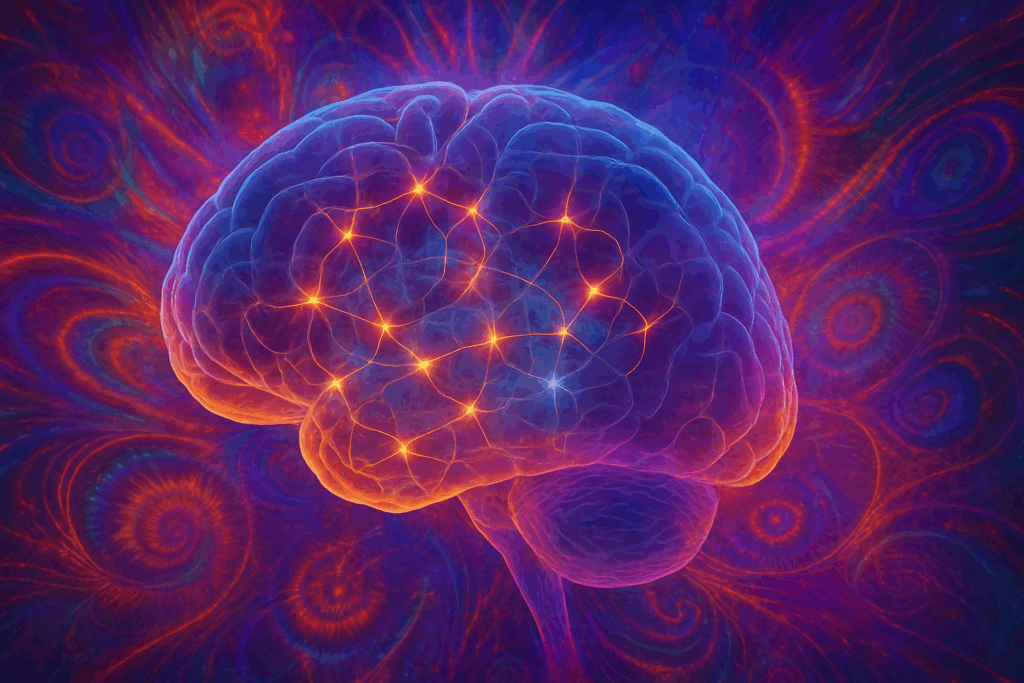
Benefits of Magic Mushrooms: Therapeutic Promise Beyond the Trip
The benefits of magic mushrooms extend well beyond the vivid hallucinations and spiritual insights often associated with their use. Clinical studies have shown that psilocybin-assisted therapy can provide relief for treatment-resistant depression, PTSD, existential distress in terminal illness, and even substance use disorders. Understanding the psilocybin mechanism of action clarifies how these benefits arise from both immediate serotonergic effects and longer-term psychological integration.
An important facet of the psilocybin and serotonin relationship is how it enables users to experience emotional breakthroughs. By diminishing the brain’s rigid control systems, psilocybin allows buried emotions, memories, and unresolved conflicts to surface in a manageable way. This process facilitates deep psychological healing, supported by evidence from longitudinal studies tracking psilocybin benefits months or even years after a single therapeutic session.
When addressing questions like “are shrooms good for you,” it’s essential to differentiate recreational use from medically supervised therapy. While the psilocybin mushroom effects on the brain are generally safe in controlled settings, unsupervised use without attention to dosage, set, and setting can lead to challenging experiences. Nonetheless, when used responsibly, psychedelic mushrooms represent one of the most promising frontiers in mental health innovation today.
Psilocybin Mechanism of Action: Beyond Simple Serotonin Boosts
To fully appreciate the profound changes triggered by psilocybin, it is critical to move beyond the simplistic notion that it merely boosts serotonin. The true psilocybin mechanism of action involves complex interactions across multiple neurotransmitter systems, brain networks, and psychological processes. Research into brain on psychedelics consistently shows that psilocybin’s activation of 5-HT2A receptors results in a cascade of downstream effects, including the modulation of glutamate, dopamine, and other critical neurotransmitters.
This broader impact explains why psychedelic experiences can encompass emotional catharsis, enhanced sensory perception, and profound existential insights. Understanding the nuanced psilocybin effects on brain chemistry helps address lingering fears, such as “do shrooms kill brain cells” or “do shrooms cause brain damage.” Comprehensive studies have consistently shown no neurotoxicity associated with clinical doses of psilocybin, further supporting its emerging role in therapeutic contexts.
Moreover, the enhanced brain connectivity observed during a psychedelic state often corresponds with increased psychological flexibility post-experience. This plasticity enables individuals to break free from entrenched cognitive patterns, supporting recovery from disorders characterized by rigidity, such as OCD and major depression. Such findings illustrate that the question “what does magic mushrooms do to your brain” involves not merely disruption but constructive reorganization.
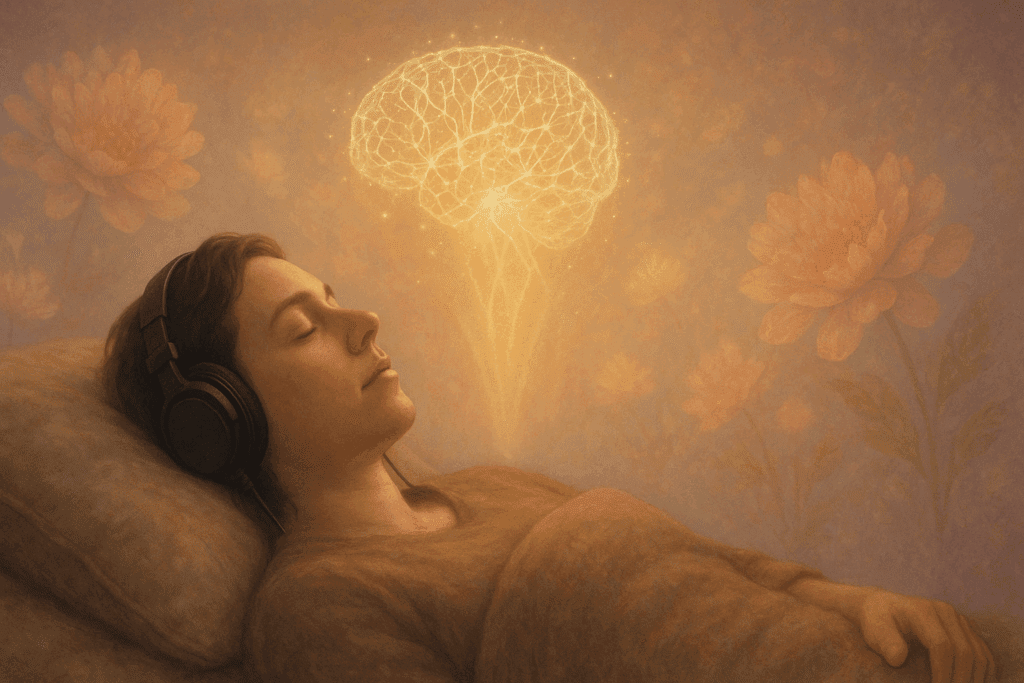
Debunking Myths: Brain Damage, Bleeding, and the Safety of Psilocybin
Despite the growing body of scientific evidence supporting psilocybin’s benefits, persistent myths continue to color public perceptions. Concerns about whether magic mushrooms kill brain cells or if mushrooms make your brain bleed are widespread, fueled largely by misinformation and sensationalist media portrayals. Addressing these fears head-on requires a careful examination of the available data.
Rigorous studies have shown that clinical use of psilocybin does not cause brain cell death, hemorrhaging, or any structural damage to brain tissue. When people wonder “does psilocybin increase serotonin,” they often envision an unnatural flood of chemicals overwhelming the brain. In reality, psilocybin modulates existing serotonin pathways in a selective, temporary, and reversible manner. This modulation enhances certain cognitive and emotional processes without producing the neurotoxicity associated with substances like methamphetamine or alcohol.
Furthermore, answering “do shrooms make your brain bleed” or “do shrooms cause brain damage” definitively shows that, under proper conditions, psilocybin is remarkably safe. However, because of its profound psychological effects, careful screening and supervision are essential to mitigate the risk of adverse psychological reactions, particularly among those with a predisposition to psychotic disorders. Thus, the magic mushrooms effects on the brain must always be contextualized within a framework of responsible use and medical oversight.
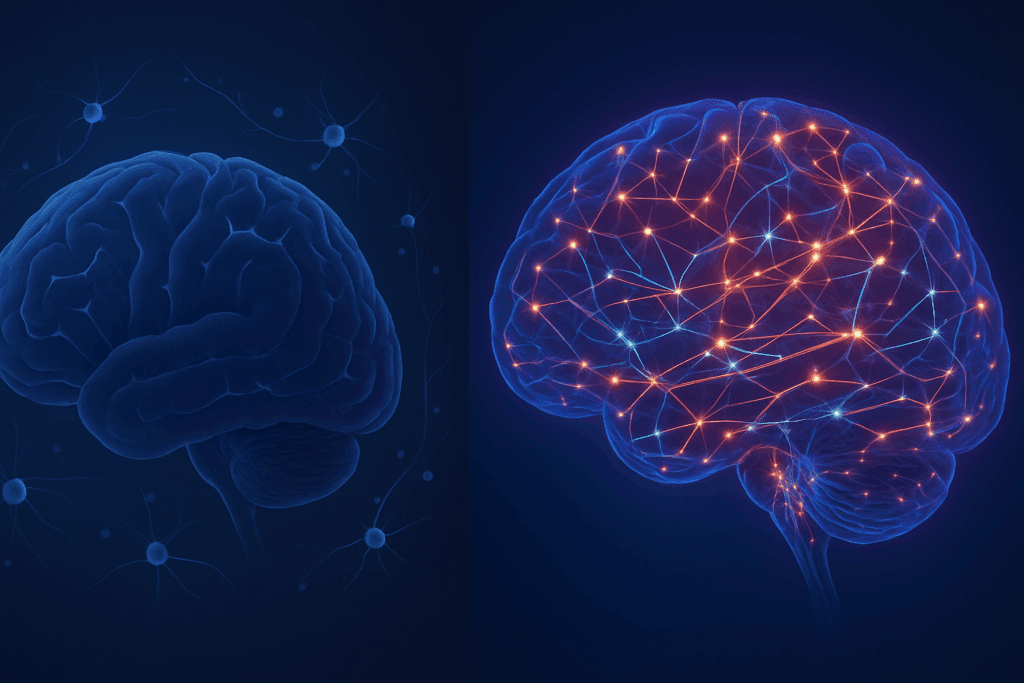
Psilocybin News: A Renaissance in Mental Health Research
The past decade has witnessed an explosion of psilocybin news highlighting breakthroughs in clinical applications, legislative shifts, and expanding public acceptance. As researchers continue to elucidate how psilocybin and serotonin work together, we are entering what many are calling a “psychedelic renaissance.” Prestigious institutions like Johns Hopkins University, Imperial College London, and NYU are leading rigorous studies exploring what psychedelic mushrooms do to your brain and how these changes translate into long-term psychological improvements.
Recent trials demonstrate that a single dose of psilocybin, combined with psychotherapy, can lead to sustained remission of depressive symptoms for months. These findings challenge traditional models of psychiatric treatment, which often rely on daily medications with variable efficacy and considerable side effects. Understanding the psilocybin mushroom effects on the brain gives researchers and clinicians powerful new tools for tackling some of the most intractable mental health challenges of our time.
Moreover, public policy is beginning to reflect these advances. Decriminalization efforts and pilot therapeutic programs are gaining momentum, suggesting a future where psilocybin-assisted therapy could become a mainstream option for mental health care. Thus, staying informed about psilocybin news is crucial for anyone interested in the evolving landscape of cognitive enhancement and emotional healing.
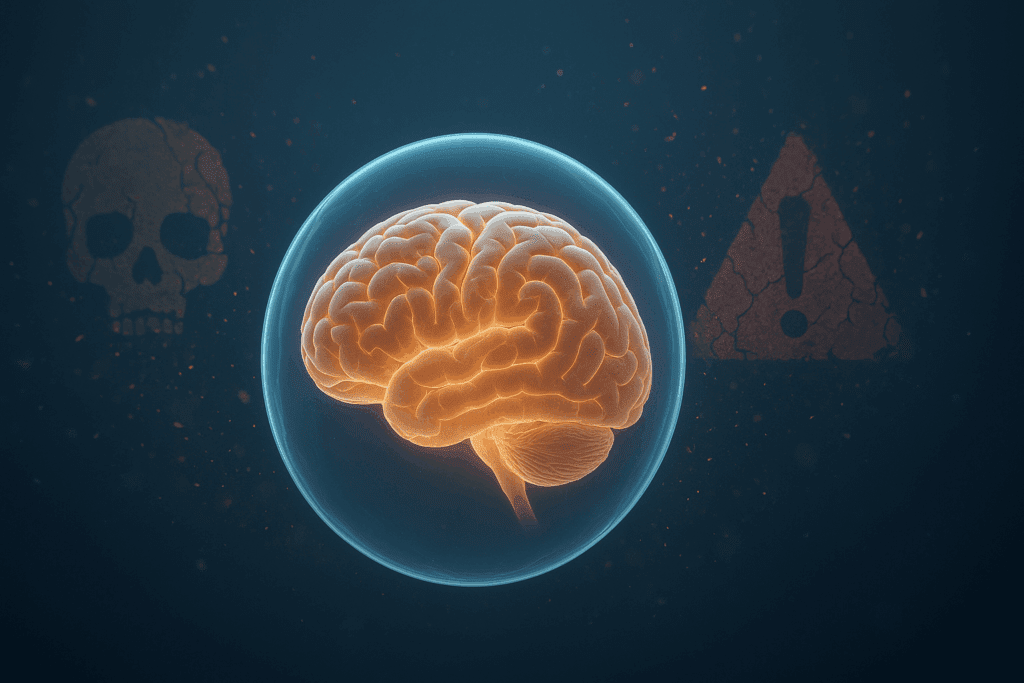
FAQ: Psilocybin and Serotonin — Understanding the Brain Effects, Benefits, and Emerging Insights
What is the significance of the relationship between psilocybin and serotonin?
The interaction between psilocybin and serotonin is fundamental to understanding how psychedelic mushrooms impact the brain. Psilocybin, once converted into psilocin, binds primarily to the 5-HT2A serotonin receptors, which are crucial for regulating mood, perception, and cognition. This binding is what triggers many of the well-known “shrooms effect” experiences, such as altered sensory perception and expanded thought patterns. Emerging research suggests that beyond simply mimicking serotonin, psilocybin prompts a broader rewiring of brain circuits, offering new possibilities for treating mood disorders. This highlights the intricate, layered relationship that makes the psilocybin mechanism of action so powerful and distinct from traditional antidepressants.
How do psychedelic mushrooms influence creativity and problem-solving abilities?
Studies examining what do psychedelic mushrooms do to your brain have shown that they temporarily dissolve the rigid boundaries between different brain networks. This increased connectivity allows novel ideas to form, enhancing creative thinking and lateral problem-solving. The psilocybin effects on brain flexibility have encouraged researchers to investigate its use in enhancing innovation across fields like art, science, and entrepreneurship. Some anecdotal reports suggest that after a psilocybin experience, individuals can more easily “think outside the box,” indicating that mushrooms brain effects might extend beyond mood to cognitive performance. This points to an exciting, albeit still emerging, domain of psilocybin benefits that taps into human potential.
What distinguishes the shrooms effect from traditional antidepressant treatments?
Unlike SSRIs, which steadily increase serotonin levels over time, psilocybin magic mushrooms create an acute, transformative experience. Research into the psilocybin mechanism of action shows that rather than maintaining a low-level chemical adjustment, psilocybin induces deep psychological shifts in a matter of hours. The question “what do shrooms do to your brain” has led to a better understanding of how one profound experience can catalyze long-term emotional healing. Unlike conventional medications, the benefits of magic mushrooms often require fewer administrations, reducing the burden of chronic daily medication use. This difference is reshaping the future of mental health treatment in ways that traditional therapies have yet to achieve.
Can psilocybin benefits extend to improving emotional resilience?
Indeed, exploring what magic mushrooms do to your brain reveals potential benefits for enhancing emotional resilience. Psilocybin appears to lower activity in brain regions associated with fear and defensiveness, allowing users to process emotions without overwhelming anxiety. This “emotional softening” can help individuals confront and work through trauma, loss, or long-standing psychological barriers. Furthermore, psilocybin mushroom effects on the brain may promote new emotional habits by enhancing neuroplasticity, creating a stronger foundation for long-term mental well-being. Thus, the benefits of magic mushrooms may include more than symptom reduction; they could foster a more adaptable, resilient psyche.
Are shrooms good for you when used for microdosing?
While full-dose experiences are often the focus of psilocybin news, microdosing — taking sub-perceptual amounts of psilocybin magic mushrooms — is gaining popularity. Advocates claim that microdosing offers subtle psilocybin benefits like improved mood, increased focus, and enhanced social connection without inducing overt psychedelic effects. Although the science is still catching up, preliminary studies suggest that low doses can engage serotonin receptors in a way that gently boosts cognitive flexibility. Understanding mushrooms brain effects at microdoses opens up a new conversation about optimizing mental health without major perceptual changes. However, rigorous clinical trials are needed to confirm these findings and guide safe practices.
Do shrooms give you energy, or is it a misconception?
The idea that shrooms give you energy is nuanced. While users often report feelings of vitality during a psychedelic experience, this is not the same as physical stimulation like one might feel from caffeine. The shrooms effect on brain activity — especially increased connectivity and emotional liberation — can create a subjective sense of renewed vigor or zest for life. Exploring what does magic mushrooms do to your brain reveals that psilocybin may lift psychological burdens, indirectly leading to an energized state of mind. However, it is important to differentiate between emotional invigoration and physical energy enhancement to maintain realistic expectations.
How does brain on psychedelics differ from brain on conventional medication?
Brain imaging studies demonstrate that the brain on psychedelics, including psilocybin, exhibits a “hyperconnected” state not typically seen with standard psychiatric medications. This distinction is vital to answering what do shrooms do to your brain and why psychedelic therapy often results in rapid, durable improvements. Unlike conventional treatments that reinforce existing neural pathways, psilocybin encourages the brain to forge new connections, potentially breaking cycles of rumination and anxiety. This difference also helps clarify persistent misconceptions, such as “do psychedelics reduce brain activity,” showing instead that psychedelics restructure activity patterns rather than simply dulling them. Thus, psilocybin magic mushrooms offer a fundamentally different therapeutic model.
Is there a risk of brain damage or bleeding from using psychedelic mushrooms?
The questions “do shrooms kill brain cells” and “does mushrooms make your brain bleed” have been extensively studied, and the consensus is reassuring. Controlled research confirms that psilocybin mushroom effects on the brain do not include cellular death, tissue damage, or hemorrhaging when used responsibly. Concerns such as “do shrooms make your brain bleed” likely stem from misconceptions or confusion with other, far more dangerous substances. Responsible use, particularly in clinical settings, shows a favorable safety profile with minimal long-term cognitive risks. Nevertheless, given the powerful shrooms effect on perception and emotion, proper screening and therapeutic support remain essential to ensure psychological safety.
What emerging trends are shaping the future of psilocybin research?
Psilocybin news continues to highlight exciting new frontiers, from personalized dosing strategies to AI-assisted psychotherapy integration. As our understanding deepens around psilocybin effects on brain networks, future therapies may customize experiences based on individual brain scans or genetic profiles. Innovations are also focusing on improving the psilocybin mechanism of action, potentially creating analogs that target serotonin pathways with even greater precision. Furthermore, global shifts toward decriminalization and medical acceptance are expanding access to psychedelic mushrooms, fostering a richer body of real-world evidence. These trends signal that the journey to understand what do psychedelic mushrooms do to your brain is just beginning, with profound implications for healthcare, wellness, and human potential.
Can psilocybin’s effects be harnessed for group therapy or collective healing experiences?
An emerging area of interest is the use of psilocybin magic mushrooms in carefully structured group settings, blending traditional rituals with modern psychotherapy. Research into mushrooms brain effects suggests that shared psilocybin experiences can deepen empathy, break down social barriers, and foster collective healing. Exploring what does shrooms do to your brain in a communal context shows that synchronized brain states may amplify emotional breakthroughs and solidarity. Although individual therapy remains the gold standard for now, group models could democratize access to the benefits of magic mushrooms, offering scalable solutions to widespread mental health challenges. This innovative application marks a bold new chapter in the evolving story of psychedelic-assisted healing.
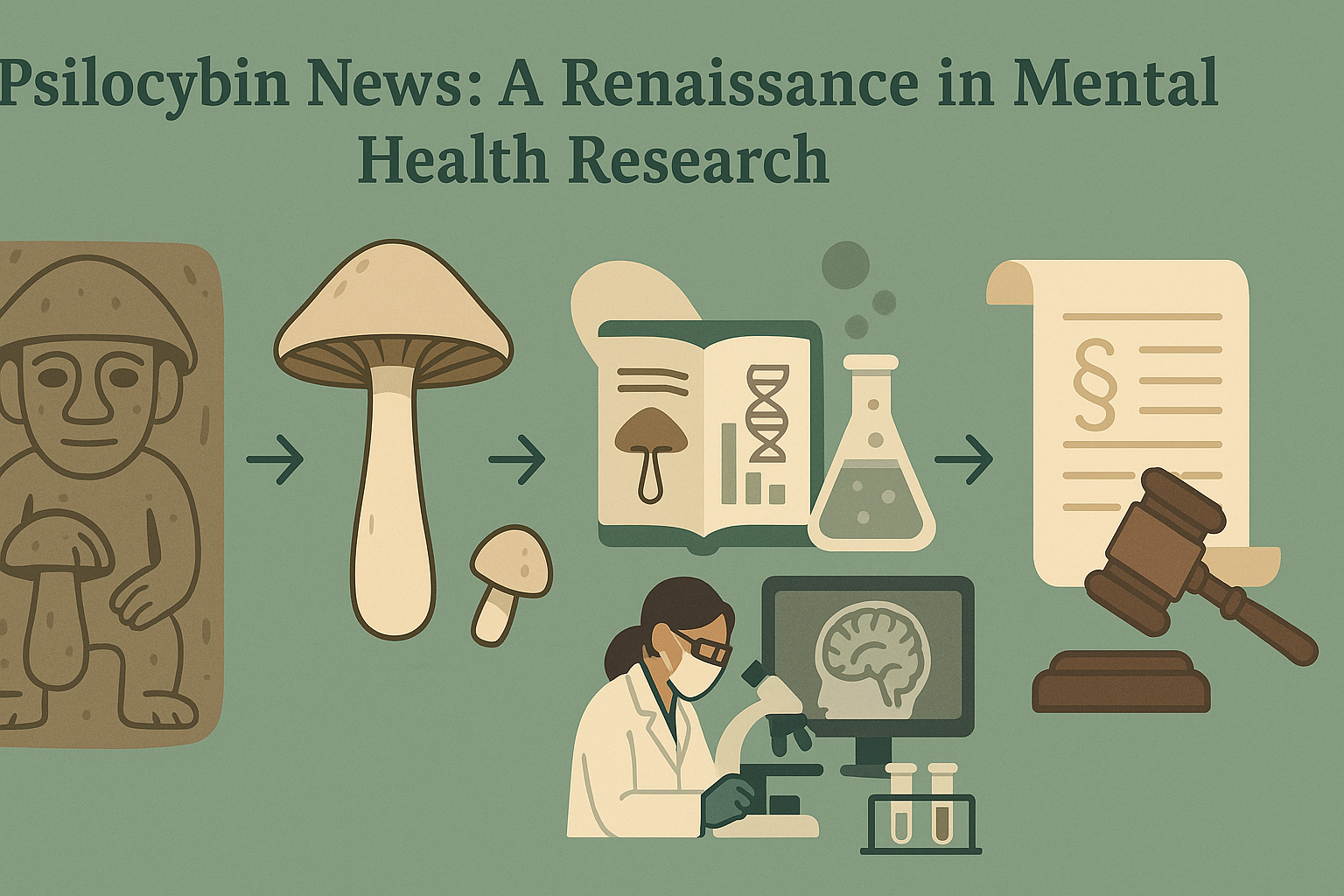
Conclusion: Embracing the Future of Brain Health with Psilocybin and Serotonin
The intricate dance between psilocybin and serotonin offers profound insights into the nature of consciousness, emotional resilience, and neuroplasticity. Far from being dangerous or damaging, the carefully guided use of psilocybin magic mushrooms reveals significant psilocybin benefits for those struggling with mental health disorders and those seeking personal growth. Understanding what do shrooms do to your brain enables a shift away from fear-based narratives toward evidence-based appreciation of these ancient natural medicines.
As scientific exploration continues to illuminate the psilocybin mechanism of action, questions like “are shrooms good for you” or “does psilocybin increase serotonin” can be answered with increasing clarity and nuance. While myths about “do shrooms kill brain cells” or “does mushrooms make your brain bleed” persist in some circles, credible research consistently supports the safety and efficacy of psilocybin when used responsibly.
Ultimately, recognizing the full spectrum of mushrooms brain effects empowers individuals to make informed, thoughtful choices about whether and how to engage with psychedelic experiences. With continued emphasis on clinical rigor, ethical application, and public education, the future of brain health and cognitive enhancement through psilocybin appears not just promising but revolutionary.
Further Reading:
Psychedelic Drugs Flatten the Brain’s Dynamic Landscape
Was this article helpful? Don’t let it stop with you. Share it right now with someone who needs to see it—whether it’s a friend, a colleague, or your whole network. And if staying ahead on this topic matters to you, subscribe to this publication for the most up-to-date information. You’ll get the latest insights delivered straight to you—no searching, no missing out.
Important Note: The information contained in this article is for general informational purposes only, and should not be construed as health or medical advice, nor is it intended to diagnose, prevent, treat, or cure any disease or health condition. Before embarking on any diet, fitness regimen, or program of nutritional supplementation, it is advisable to consult your healthcare professional in order to determine its safety and probable efficacy in terms of your individual state of health.
Regarding Nutritional Supplements Or Other Non-Prescription Health Products: If any nutritional supplements or other non-prescription health products are mentioned in the foregoing article, any claims or statements made about them have not been evaluated by the U.S. Food and Drug Administration, and such nutritional supplements or other health products are not intended to diagnose, treat, cure, or prevent any disease.


